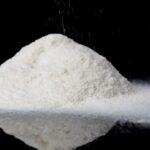Choosing the right acid depends on what you need. People use acids for food, health, cleaning, and supplements. Citric acid is used more because it works in many ways. It also costs less. Fumaric acid tastes more sour and has special uses in processed foods. The table below shows how each acid is used:
| Aspect | Citric Acid | Fumaric Acid |
|---|---|---|
| Sourness | Mild, familiar | Strong, intense |
| Cost | Lower | Higher |
| Main Uses | Food, cleaning | Processed foods |
Fumaric Acid vs Citric Acid: Benefits & Uses

Benefits Overview
Fumaric acid has special benefits in food and other areas. It is about 1.5 times more acidic than citric acid. This means you need less fumaric acid to get the same sour taste. Using less makes it a good choice for saving money in food products. Fumaric acid helps keep food fresh by breaking down germs. This makes food last longer. It also helps people with psoriasis by supporting skin health. Fumaric acid is important for making energy in the body. Both fumaric acid and citric acid are safe to eat. They are approved by health agencies.
- Fumaric acid gives:
- Strong sourness with small amounts
- Good food preservation
- Help for skin and body energy
- Safe use in food and cosmetics
Citric acid is still popular because it tastes mild. People use it in food, cleaning, and personal care items.
Uses Overview
Fumaric acid and citric acid are used in many industries. In food, fumaric acid is found in bread, drinks, candy, and jams. It helps dough feel better, keeps pH steady, and makes food last longer. Fumaric acid is also used in cosmetics to balance pH. It helps clean by removing stains and scale. Citric acid is used to make food sour, keep it fresh, and add flavor. It also helps clean things and keeps pH steady in cosmetics.
| Industry | Fumaric Acid Uses | Citric Acid Uses |
|---|---|---|
| Food & Beverage | Acidulant, flavor enhancer, preservative | Acidifier, preservative, flavor enhancer |
| Food Industry | Bakery, beverages, candies, jams, desserts | Canning, beverages, candies, color preservation |
| Cosmetics | pH adjuster, skin-conditioning agent | pH adjuster, stabilizer |
| Cleaning Products | Stain and scale remover | Descaling, water softening |
| Industrial | Resin and polymer production | Textile dyeing, water treatment |
Key Features
- Fumaric acid is more sour than citric acid. This makes it useful in food.
- It stays stable when it is humid. This helps keep products good.
- Fumaric acid fights germs, so it helps keep food safe.
- Citric acid is known for its mild taste and many uses.
- Both acids are allowed in big markets. Fumaric acid is often in processed foods that need strong sourness and longer shelf life.
Tip: Think about how sour you want your product, the cost, and what you need it for when picking between fumaric acid and citric acid.
Fumaric Acid Benefits
Health Effects and Potential Wellness Benefits of Fumaric Acid
Fumaric acid helps people stay healthy. Studies show fumaric acid esters, like diroximel fumarate, help treat relapsing multiple sclerosis. Patients have fewer side effects, such as mild flushing and stomach pain, than with other treatments. This makes it easier for people to keep taking their medicine. Their lives get better. Many patients feel less worried and more normal during treatment. Fumaric acid esters also help skin, especially for people with psoriasis. Doctors in Europe use fumaric acid to treat relapsing multiple sclerosis. The compound works as an antioxidant and helps control the immune system. These things make fumaric acid useful in medicine and wellness products.
Advantages of Using Fumaric Acid as a Food Additive
Fumaric acid is a strong and stable food additive. Food makers use fumaric acid to improve taste in baked goods, candies, and drinks. It keeps food fresh by stopping germs from growing. The European Food Safety Authority says fumaric acid is safe for animal feed and food. Fumaric acid esters help treat psoriasis, but fumaric acid in food does not have the same medical effects. Still, it helps food stay fresh and stable. This makes it popular in the food industry.
Industrial Applications and Advantages of Fumaric Acid
Fumaric acid is helpful in many industries. In food, it works as an acidulant, preservative, and antioxidant. It makes food taste better and keeps pH levels steady in jellies and drinks. Drug makers use fumaric acid to make medicine for psoriasis and multiple sclerosis. Fumaric acid forms stable salts that help drugs last longer and work better. The plastics industry uses fumaric acid to make polyester plastics that are strong and stable. In farming, fumaric acid helps plants grow and makes soil better. These uses show why fumaric acid is important in modern manufacturing.
Fumaric Acid Uses

Food Applications
Fumaric acid is used in many foods. It makes drinks like soda and juice taste more tart. In bread and cakes, it helps control pH and makes dough stronger. It also helps baked goods keep their sour taste longer. Candy makers use fumaric acid to make candy and gum taste very tangy. It also helps candy feel better to chew. Sauces, jams, and jellies last longer because fumaric acid stops bacteria from growing.
Some main reasons to use fumaric acid in food are:
- It helps food last longer by stopping spoilage.
- It gives a strong, lasting tart flavor.
- It controls pH for better texture and keeps food stable.
- It does not soak up water, so dry mixes stay loose.
- You need less of it than other acids, so it saves money.
| Food Category | Functions of Fumaric Acid | Benefits |
|---|---|---|
| Beverages | Acidulant, pH control | Sharp, lingering tartness |
| Baked Goods | Leavening agent, dough conditioner | Consistent rise, improved texture |
| Confectionery | Flavor enhancer | Intense sourness, better texture |
| Processed Foods | Acidulant, preservative, pH regulator | Flavor, stability, shelf life |
| Dry Mixes | Prevents clumping | Maintains quality |
Fumaric acid works well in baking because it stays good in heat and wet air. This makes it great for foods that are processed or dry mixes.
Supplement Uses
Fumaric acid is also found in some supplements. Ferrous fumarate is a type that gives iron to people who need it. It helps treat and stop iron deficiency anemia. This kind of iron does not rust easily and is safe for most people. Fumaric acid esters are used to help people with psoriasis. Studies show these esters can make psoriasis better, but they might cause mild stomach pain. Doctors watch patients closely when they use these supplements to make sure they are safe.
Safety Notes
Fumaric acid is safe to use in food and supplements. The Food Chemical Codex says it is okay to use for controlling acidity and helping things stick together. Companies make it in safe, clean places that follow FDA rules. The FDA and the European Food Safety Authority both say fumaric acid is safe. There is a Safety Data Sheet that tells you how to use and handle it. In California, some products with fumaric acid have a warning about cancer and harm to babies. People should always read labels and ask a doctor if they have questions.
Citric Acid Benefits
Health Effects of Citric Acid
Citric acid helps keep food safe and healthy. Scientists found that citric acid can hurt bad bacteria like Vibrio alginolyticus and Vibrio cholerae. It damages their cell walls, so they cannot live well in sour foods. This helps protect seafood and other foods with acid. Another study showed that soaking garlic in citric acid makes it stronger. The garlic gets more antioxidants and can fight germs better. These good changes may help people stay healthy. Citric acid can also help some foods work better and may be good for skin because of its antioxidants.
Food Additive Benefits of Citric Acid
Citric acid is used a lot in food. Food makers use it to make foods more sour, taste better, and last longer. It keeps canned fruits and vegetables safe from bad germs like Clostridium botulinum. The FDA says citric acid is safe for these jobs.
- It slows down bacteria, mold, and yeast, so food lasts longer.
- It helps food keep its color, taste, and feel.
- It keeps pH levels steady, so food and drinks taste good and do not spoil.
- It works as an antioxidant and chelating agent, which keeps food safe and nutrients strong.
- It helps cheese melt and stretch by holding onto calcium.
- It stops oil from separating in spreads and keeps meat and fish fresh.
These things make citric acid a top pick for many foods.
Environmental and Household Benefits
Citric acid is good for the environment and home use. It is natural and breaks down easily. It is a strong cleaner and chelating agent. People use it to clean off scale, rust, and minerals. It makes water softer in soaps and cleaners, so they work better. Many green cleaning products have citric acid because it cleans without harsh chemicals. In makeup and skin care, citric acid keeps pH balanced and helps other ingredients work. Factories make citric acid by fermenting plants, which cuts down on waste and pollution. Its preservative power also keeps food and supplements safe by stopping germs and fungi.
Citric Acid Uses
Food Applications
Citric acid is important in many foods. Companies add it to make food taste better. It helps food last longer and keeps texture good. The table below shows how citric acid is used in foods and what benefits it gives:
| Food Application | Advantages Offered |
|---|---|
| Cheese Manufacturing | Speeds up cheese making, so factories make more cheese faster. |
| Shelf Life Extension | Lowers pH and stops bacteria, so jams, canned foods, and meats stay fresh longer. |
| Flavor Enhancement | Makes drinks and foods taste sour, which many people like. |
| Emulsifier | Stops fat from clumping in ice cream and sherbet, so they stay smooth and taste good. |
| Effervescence | Mixes with sodium bicarbonate to make fizz in candy, sodas, and drink powders. |
| Beer & Wine Production | Makes things more acidic, which helps with fermentation and flavor. |
| Nutrient Absorption | Helps the body take in vitamins and minerals by keeping things acidic. |
Citric acid also stops fruits from turning brown. It keeps canned foods safe from bad germs.
Cleaning Uses
Citric acid cleans homes and businesses well. It gets rid of hard water stains and mineral spots. It also removes slimy layers by sticking to metals. People use it in kitchens, bathrooms, coffee makers, and kettles. Studies show citric acid breaks up slime, so cleaning is easier. A 5-10% mix works best for light cleaning. Many green cleaners use citric acid because it breaks down fast and is safer than strong chemicals. But it does not clean heavy rust or grease well. It can hurt soft surfaces like marble or granite.
Tip: Try citric acid cleaner on a small spot first before using it on soft surfaces.
Cosmetic Uses
Citric acid is in many skin and hair products. It gently scrubs off dead skin, so skin looks brighter. It helps fade dark spots and keeps skin moist. It protects skin from damage. Scientists found citric acid makes skin thicker and helps build collagen, which makes skin firmer. In hair products, it clears away minerals and keeps scalp pH balanced. This makes hair shiny and smooth.
- Some common uses are:
- Toners and scrubs
- Anti-aging creams and masks
- Shampoos and conditioners
People should wear sunscreen when using citric acid products because skin can burn easier.
Safety Notes
Citric acid is safe if you use it the right way. Food-grade citric acid is very pure and the FDA says it is safe to eat. Industrial citric acid is not safe to eat and is only for cleaning or factories.
| Aspect | Details |
|---|---|
| Regulatory Status | FDA says it is safe in the USA, EFSA allows it in the EU, and Japan and India permit it. |
| Safety Notes | It can cause mild irritation if you breathe it in or get it on your skin or eyes. |
| Storage Guidelines | Keep it in a cool, dry place and close the container tightly. |
| Grade Recommendations | Use food-grade citric acid for food and skin products. |
Note: Always read labels and pick the right type of citric acid for what you need.
How to Choose Between Fumaric Acid and Citric Acid
Practical Recommendations for Choosing Between Fumaric Acid and Citric Acid
Picking the right acid depends on what you want to do. People who make food, health products, or cleaners need different things. Use this guide to help you choose the best acid for your needs.
Step-by-Step Guide
- Define the Purpose
- For food, think about how sour you want it, the taste, and how long it will last.
- For health supplements, check if it is safe and works well.
- For cleaning, see if it mixes with water and cleans well.
- For factories, make sure it fits with how things are made.
- Compare Functional Properties
- Look at how sour each acid is, the price, and how many ways you can use it.
- Check how well it mixes and how much you need for food.
- Assess Consumer Preferences
- See if people want natural ingredients and simple labels.
- Think about what people like, such as sourness, how long food lasts, and being good for the planet.
- Evaluate Regulatory and Safety Factors
- Make sure health groups like the FDA and EFSA say it is safe.
- Look for any warnings or rules in your area.
Pros and Cons Table
| Aspect | Fumaric Acid | Citric Acid |
|---|---|---|
| Cost | Least expensive among food-grade acids; low solubility may affect efficiency. | Efficient production; lower cost due to citrus fruit sourcing. |
| Sourness | Fruit acid with a strong, tart taste; classified as a weak acid. | Common fruit acid; provides a familiar tartness and flavor stability. |
| Versatility | Used in food, pharmaceuticals, plastics, and resins. | Extensively used in food, beverages, pharmaceuticals, and cleaning products. |
| Solubility | Less soluble; ideal for solid foods and dry mixes. | Highly soluble; preferred for beverages and syrups. |
| Substitution | 0.91 g fumaric acid replaces 1.36 g citric acid in food applications. | N/A |
| Additional Benefits | Enhances tartness, shelf life, and pH stability at lower concentrations. | Improves antimicrobial efficacy; reduces carcinogen levels in cooked foods. |
Application Factors Table
| Factor | Fumaric Acid | Citric Acid |
|---|---|---|
| Primary Use | Acidity regulator, food acidulent; alternative to tartaric and sometimes citric acid | Natural preservative, flavor enhancer, buffering agent in beverages |
| Substitution Ratio | 0.91 g fumaric acid replaces 1.36 g citric acid | N/A |
| Flavor Contribution | Provides tangy/sour flavor | Provides tangy/sour flavor |
| Solubility | Less soluble, suitable for solid food applications like pudding mixes | Highly soluble, ideal for syrup concentrates and beverages |
| Specific Applications | Coagulant in stovetop pudding mixes | Widely used in carbonated and non-carbonated beverages, dry powder and artificially sweetened drinks |
| Additional Benefits | N/A | Enhances antimicrobial preservative efficacy; reduces carcinogen levels in cooked food |
| Industry Preference | Favored for certain solid food applications | Preferred in beverage industry for flavoring and pH maintenance |
Consumer Preferences and Trends
- Fumaric acid gives a strong sour taste that many people like in food and drinks.
- Big drink companies use fumaric acid to make flavors better and balance sweetness.
- Citric acid is popular because it costs less and comes from citrus fruits.
- Some companies pick fumaric acid to make their products look more natural and simple.
- More people want easy-to-make foods, so fumaric acid is used to keep food fresh and sour.
- Eco-friendly ideas and new ways to make fumaric acid attract people who care about the planet.
- People who want healthy and natural foods also choose fumaric acid.
Recommendations for Common Scenarios
Tip: Pick fumaric acid for solid foods, dry mixes, and things that need strong sourness or to last longer. Use citric acid for drinks, syrups, and things that need to mix well and taste mild.
- Food Manufacturing:
Fumaric acid works well in dry mixes, baked goods, and processed foods. Citric acid is best for drinks, canned foods, and foods that need to dissolve fast. - Health Supplements:
Fumaric acid helps in iron pills and psoriasis medicine. Citric acid helps your body take in vitamins and is a safe acid for supplements. - Cleaning Products:
Citric acid is great for cleaning because it mixes well and grabs onto minerals. Fumaric acid is not used much for cleaning but helps keep pH steady in some products. - Industrial Applications:
Fumaric acid is used in making plastics, resins, and inks. Citric acid helps treat water and dye fabrics.
Note: Makers should use fumaric acid when they want more sourness, longer shelf life, and simple labels. Citric acid is better when you need to save money or want something that mixes easily.
Fumaric acid and citric acid are both important in food, health, and industry. The table below shows what they are used for and their main benefits:
| Aspect | Fumaric Acid | Citric Acid |
|---|---|---|
| Main Uses | Food acidulant, flavor enhancer, pH regulator | Food acidulant, preservative |
| Additional Benefits | Improves shelf life, supports wellness | Enhances flavor, cleans |
| Industrial/Pharma | Resins, coatings, psoriasis treatment | Cleaning, cosmetics |
Pick fumaric acid if you want strong sourness and foods that last longer. Choose citric acid if you want a mild taste, easy mixing, or need to clean things. Think about what you need before you decide which acid to use.
FAQ
What is the main difference between fumaric acid and citric acid?
Fumaric acid tastes much more sour than citric acid. Citric acid costs less and mixes with water easily. Food makers use citric acid in drinks. Fumaric acid is used in dry mixes.
Is fumaric acid safe to eat?
Groups like the FDA and EFSA say fumaric acid is safe for food. People can eat small amounts of it. Always read labels to check for safety.
Can citric acid clean household surfaces?
Citric acid can clean stains and scale from many surfaces. People use it in kitchens and bathrooms. Try it on a small spot first to make sure it does not harm anything.
Which acid works better for supplements?
Fumaric acid helps in iron pills and some skin treatments. Citric acid helps your body take in vitamins. Both acids are good for health, but each has special uses.
Does either acid cause allergies?
Most people do not get allergies from fumaric acid or citric acid. Sometimes, a few people may feel mild irritation. If you are worried, talk to a doctor.




